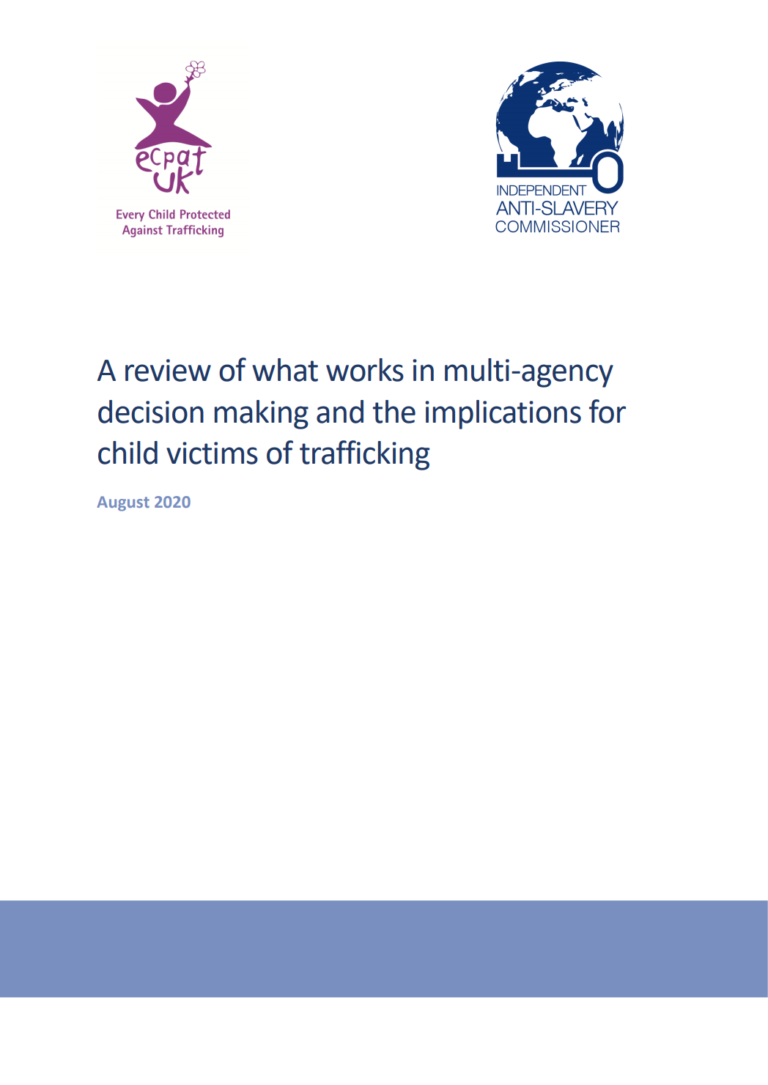This review has drawn upon findings from evaluations and research that has been carried out by academics and by government departments. It has identified that in some cases, there is an absence of an independent, published evaluation. To understand what works and to ensure that developments in policy and practice are evidence based, it is essential that evaluations are carried out, that they are robust and that the findings are published. In addition, it is fundamental that in evaluating the success of devolved NRM decision making there is a focus on the impact on longer term outcomes for children.
The review concludes by making observations on the function of multi-agency decision making models, recognizing that each of the four models encompassed both decision making in relation to vulnerability and risk, as well as contributing to safeguarding and action planning. In relation to child trafficking, it is recognized that there are both statutory duties for safeguarding partners under the Children Act (1989),(2004) and the Children and Social Work Act (2017), as well as obligations under Article 10 of ECAT relating to the identification of victims. Further exploration is therefore required of how these systems interact in practice at a local level, but it is essential that a devolved decision making model does not exist solely as a binary determination of trafficking status but is intrinsically linked to local safeguarding structures.

